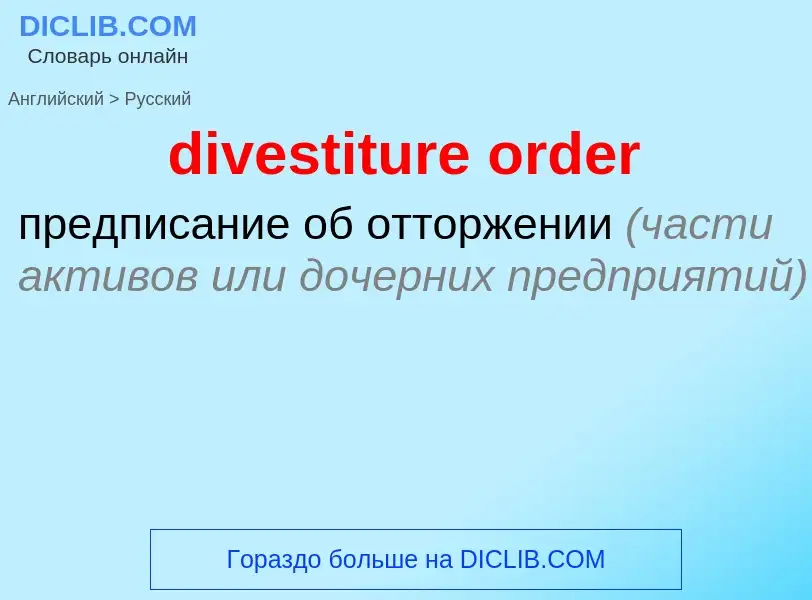ترجمة وتحليل الكلمات عن طريق الذكاء الاصطناعي ChatGPT
في هذه الصفحة يمكنك الحصول على تحليل مفصل لكلمة أو عبارة باستخدام أفضل تقنيات الذكاء الاصطناعي المتوفرة اليوم:
- كيف يتم استخدام الكلمة في اللغة
- تردد الكلمة
- ما إذا كانت الكلمة تستخدم في كثير من الأحيان في اللغة المنطوقة أو المكتوبة
- خيارات الترجمة إلى الروسية أو الإسبانية، على التوالي
- أمثلة على استخدام الكلمة (عدة عبارات مع الترجمة)
- أصل الكلمة
divestiture order - ترجمة إلى الروسية
математика
конечный порядок
[dai'vestitʃə]
существительное
общая лексика
лишение (прав и т. п.)
книжное выражение
раздевание
разоблачение
лишение (прав)
تعريف
ويكيبيديا
In psychology and behavioral economics, the endowment effect (also known as divestiture aversion and related to the mere ownership effect in social psychology) is the finding that people are more likely to retain an object they own than acquire that same object when they do not own it. The endowment theory can be defined as "an application of prospect theory positing that loss aversion associated with ownership explains observed exchange asymmetries."
This is typically illustrated in two ways. In a valuation paradigm, people's maximum willingness to pay (WTP) to acquire an object is typically lower than the least amount they are willing to accept (WTA) to give up that same object when they own it—even when there is no cause for attachment, or even if the item was only obtained minutes ago. In an exchange paradigm, people given a good are reluctant to trade it for another good of similar value. For example, participants first given a Swiss chocolate bar were generally willing to trade it for a coffee mug, whereas participants first given the coffee mug were generally unwilling to trade it for the chocolate bar.
A more controversial third paradigm used to elicit the endowment effect is the mere ownership paradigm, primarily used in experiments in psychology, marketing, and organizational behavior. In this paradigm, people who are randomly assigned to receive a good ("owners") evaluate it more positively than people who are not randomly assigned to receive the good ("controls"). The distinction between this paradigm and the first two is that it is not incentive-compatible. In other words, participants are not explicitly incentivized to reveal the extent to which they truly like or value the good.
The endowment effect can be equated to the behavioural model willingness to accept or pay (WTAP), a formula sometimes used to find out how much a consumer or person is willing to put up with or lose for different outcomes. However, this model has come under recent criticism as potentially inaccurate.




